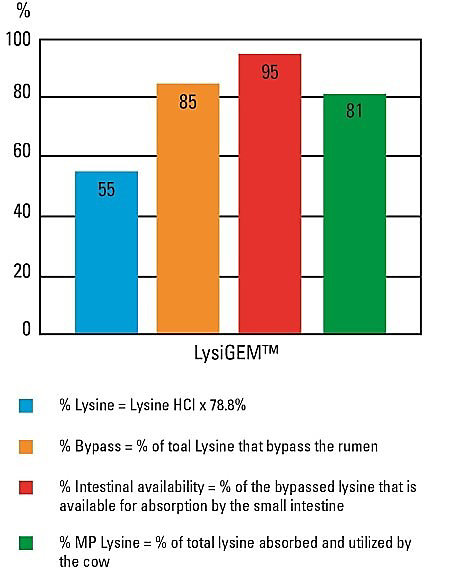During each growth stage of a ruminant, essential Amino Acids (AA) requirements are different. A dairy cow’s essential AA requirements are even more complex as she transitions between pregnancy and lactation.
Without proper supplementation of essential AA such as Lysine (Lys) and methionine (Met), it's hard to reach the nutritional goals of today’s dairy cow. Methionine (Met) and Lysine (Lys) have most frequently been identified as the two most limiting AA for lactating dairy cows fed corn-based rations (NRC, 2001). Research conducted since the publication of NRC (2001) has confirmed these findings. Given their low concentrations in more common protein sources, relative to concentrations in rumen bacteria, in milk and tissue protein, these findings are not surprising.
The Role of LysiGEM™ in Balancing AA in Dairy Cows
How efficiently the digestible protein is utilised depends directly on the AA profile of the feed. If one AA is in shortage relative to its requirements, the other AA will be utilised inefficiently. As a result, they will be broken down, which increases the nitrogen burden in the dairy cow and impacts the animal’s performance negatively.
Balancing AA in dairy cow diets is becoming more widely accepted among dairy producers. Increased interest in AA balancing is caused by a desire to lower protein diets, high prices for protein supplements, and continued refinement and improvement of nutrition models. Lysine and methionine also play key roles in reproductive efficiency.
Kemin developed LysiGEM™ to address this challenge. This product is a rumen-protected Lysine that offers a cost-effective solution for balancing amino acids in dairy cow diets.

